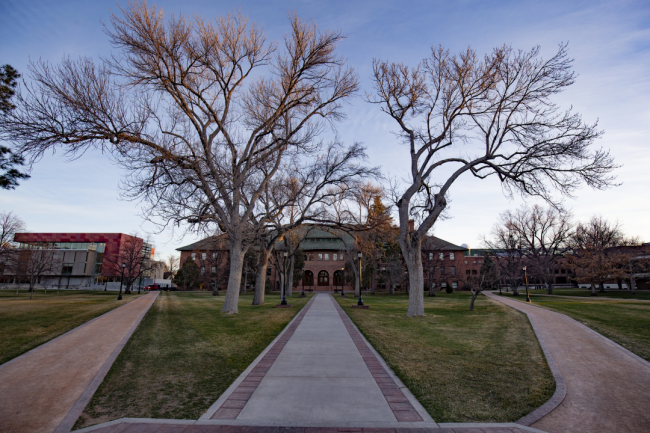You have /5 articles left.
Sign up for a free account or log in.

The first-year experience at Colorado College focuses on interdisciplinary learning and understanding the styles of learning and writing in higher education related to the disciplines.
Wirestock/iStock/Getty Images Plus
When students enroll in college, very few of them know the differences between faculty and teachers, school subjects and disciplines, or a liberal arts college versus a research university.
To better prepare students for their college careers, Colorado College restructured its general education courses to make the first-year experience focused on disciplinary scholarship. This fall is the fourth year of the college’s program, and college leadership has seen a positive impact on faculty relationships and students’ understanding about the nature of higher education.
What’s the need: First-generation students are often identified as the group least informed on the hidden curricula of higher education, but a majority of students lack critical knowledge of how a college functions.
“The thing that I’m really interested in is, what students need to know or be able to do to be successful on our campus in a liberal arts context,” explains Aaron Stoller, associate vice president for student success. “We really wanted to build a program around helping students gain disciplinary literacy because it is so critical to their long-term success.”
Disciplinary literacy includes knowing the specifics of reading, writing and communicating in a discipline, which can benefit students in an academic setting but also in academic planning as students consider their major and vocational direction, Stoller says.
“Ironically, in most college curricula, there really just aren’t opportunities for [students] to directly learn those skills,” Stoller says. “We wanted to intervene right away when students came into the college and to have an opportunity for direct instruction with them.”
The college launched its new First-Year Program in fall 2020.
How it works: Colorado College operates on a block plan, in which students complete four courses over the course of the semester, each for three and a half weeks.
All incoming students complete a critical inquiry seminar and first-year writing seminar for their first two blocks. The two courses are connected by a disciplinary focus and grouped into a larger theme of three to five courses, which have theme-wide class sessions two to three times per block.
For example, a student may enroll in the seminar, Plants & People, which falls under the theme of (Un)natural Relationships. The student will have one instructor and 16 peers in the Biology course but will also engage with peers and faculty in the theme’s parallel courses, Mathematical Modeling of Infectious Diseases, the Animal-Human Boundary, and Nutrition’s Role in the Pursuit of Health, three times throughout the term.
This student will continue on with their same peers for the second seminar, Sports, Media and Society, this time taught by a different professor but will, again, learn across disciplines with theme peers at least twice during that block, as well.
Themes vary each year, based on which faculty members participate as instructors. Around half of the faculty retain as seminar instructors each fall, but the other half change based on professors’ interests and availability, Stoller says. This fall has 10 themes and 33 seminar pair courses.
Participating faculty members create their seminar pairs and then meet with all faculty members to organize topics into themes, selecting other courses with similar ideas across disciplines.
The goals: The seminars are designed as college-prep courses, but not in a generalized academic skills kind of way, Stoller explains.
Instead, the first seminar teaches students that disciplines exist, that disciplines approach problems from varied perspectives and that those varied perspectives shape outcomes of inquiry, as well as the classroom experience for students. The second course identifies how writing functions to create and communicate knowledge and how it varies across disciplines.
Many institutions use first-year seminars to help students identify their career goals or skills, and while Colorado College believes those ideas are important and come into play as students get older, starting the conversation with disciplinary literacy is “a critical piece.”
“We’re thinking about the first class that a student has at the institution, what is going to set them up for success?” Stoller says. “Is it going to be thinking five years down the road, or is it going to be understanding the culture of learning as it exists for them today so that we can make sure they’re able to navigate the curriculum successfully?”
The impact: Interdisciplinary team-taught courses can be labor and time intensive, but the seminar format has allowed the college to scale interdisciplinary course offerings without a heavy lift for faculty with the same benefits for students.
“They’re sharing syllabi and they are teaching their class, which is about reflecting on their own discipline but, at multiple points, they all get together and try to put those disciplines into conversation with each other,” Stoller says.
The seminars have also created opportunities for faculty members to bring what they love into the classroom and collaborate with their colleagues across departments.
As a result of the program, “[faculty] have seen themselves as being part of our students’ success mission,” Stoller says.
If your student success program has a unique feature or twist, we’d like to know about it. Click here to submit.




